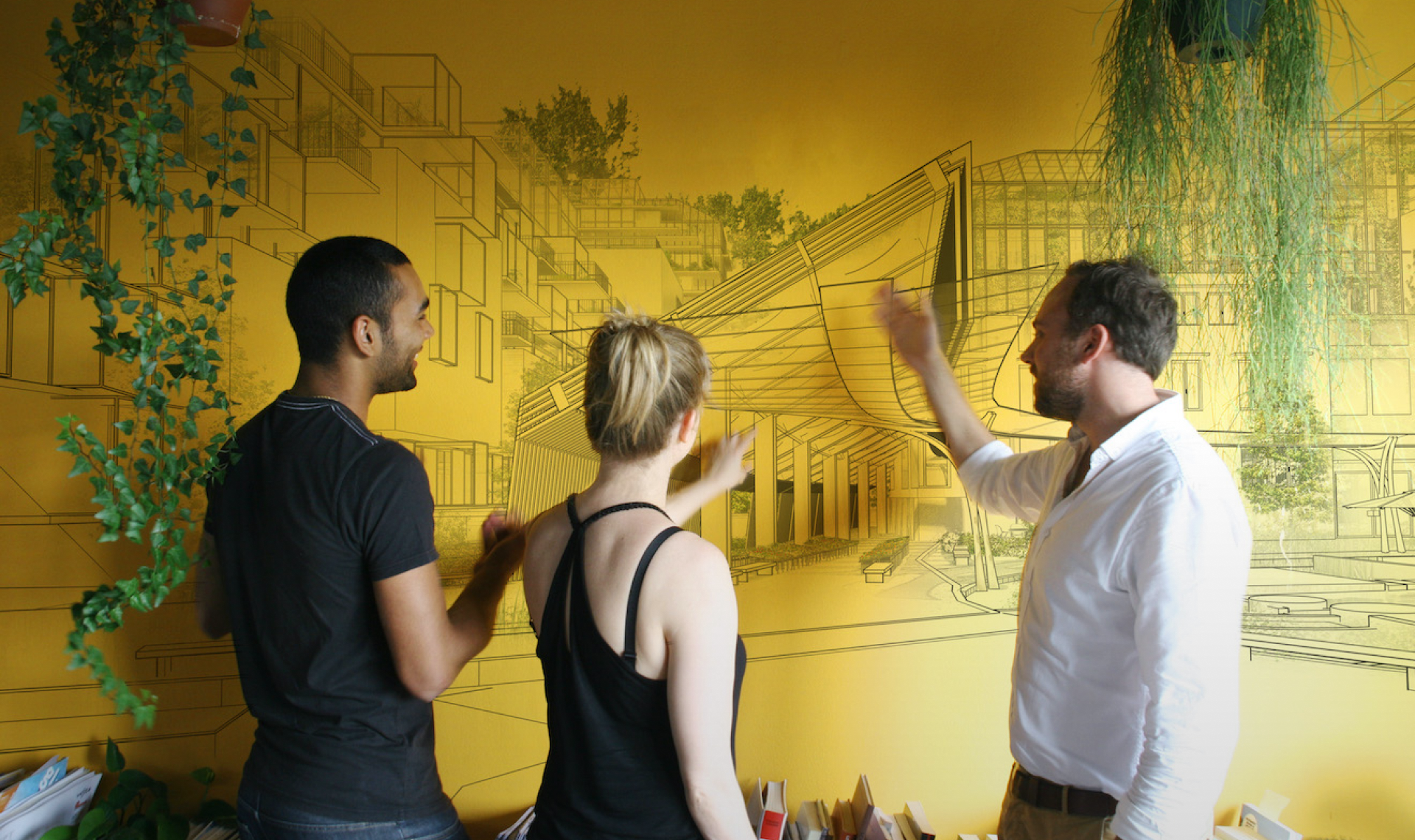The new IPCC report is out, jellyfish shut down a nuclear reactor, and India builds its first ‘baby factory’. Read all about it in this Wormfood. Also, this Wormfood features a brand new section. Later this fall we will organize our first master class on City of Tomorrow. That's why we celebrate City of Tomorrow by adding it as a new theme to this news digest. If you have suggestions for articles, let me know.
Global News: Alarming conclusions of IPCC report
- The new IPCC report is published. Its main conclusion? If people continue to emit greenhouse gases at current rates, the accumulation of carbon in the atmosphere could mean that within as little as two to three decades the world will face nearly inevitable warming of more than 2C, resulting in rising sea levels, heat waves, droughts and more extreme weather.
This is already the fifth report of the IPCC. Researcher Andrew C. Revkin explains why science is not the problem of the fight against climate change, it’s semantics: “If you change the conversation to things that we all care about — efficiency, not being wasteful, innovation, moving things forward, you can actually create consensus where there seems to be only polarization. So if I had to have a bumper sticker on my Prius…, I would choose ‘Join the Energy Quest’ over ‘Fight the Climate Crisis’.” - Another spill at the Fukushima nuclear plant has released water 6,700 times more radioactive than the legal limit. The Japanese government announced in early September it will invest $500 million to build a giant 'wall of ice' surrounding the plant. Yet, experts it will take at least 2 years to complete, and there is no evidence it will mitigate the crisis.
Energy & Environment: Jellyfish shut down nuclear reactor

- A huge cluster of jellyfish forced one of the world’s largest nuclear reactors to shut down by clogging the pipes that bring in cool water to the plant’s turbines. This phenomenon could become more common according to marine biologists. "It's one of the species that can survive in extreme areas that are over-fished or have bad conditions. The moon jellyfish likes these types of waters. They don't care if there are algae blooms, they don't care if the oxygen concentration is low. The fish leave … and [the moon jellyfish] can really take over the ecosystem."
- Iceland issued two licenses for oil exploration in January and is finalizing a third, hoping to pave the way for rigs to drill on the ocean surface for the first time. The U.S. Geological Survey estimated in a widely quoted report from 2008 that the Arctic contained 90 billion barrels of potentially recoverable oil, representing 13 percent of its estimate of the world’s untapped yet potentially accessible total supply.
Business & Economy: Typo adds $14.5 billion to Spanish debt

- The Spanish government has admitted to making a typographical error which increased the country's public debt figure by about $14.5 billion (€ 10.7 billion).
- China overtakes US as the biggest importer of oil. Oil consumption in China had outstripped production by 6.3 million barrels a day, said the Energy Information Administration (EIA).
Science, Technology, & Design: Ikea sells solar panels

- Ikea is about to sell solar panels at its British stores. Ikea customers will receive a package that includes in-store consultation, installation and maintenance of the panels
- Some online journals will publish fake science, for a fee. A contributor to the respected scientific journal Science sent a deliberately faked research article 305 times to online journals. More than half the journals that supposedly reviewed the fake paper accepted it.
- The Japanese space agency JAXA is developing a revolutionary concept to put "power stations" in orbit to capture sunlight and beam it to Earth.
Urban Environment: Cleaning runoff water using beaches

- This interesting concept cleans runoff water from sea sides by sending it underneath beaches, where sand can filter bacteria out.
- Sweetwater Spectrum is a residence for 16 adults whose abilities and disabilities span the full range of autism. Sweetwater, by intention, will be a kind of laboratory to work out ideas that range from the mundane to the profound. Will nontoxic building materials improve the daily experience for a population that often reacts strongly to sensory irritants? Will the residents of a more responsive building require less expensive care?
Unexpected and Intriguing: Games should honor "rules of conflict"

- Games are becoming so realistic that it's time virtual soldiers started obeying the Geneva Convention, the Red Cross has argued. Next to becoming realistic, the games also reward players for carrying out acts that in reality would be considered war crimes and subject to international prosecution. Targeting civilians, torturing prisoners of war and stealing dog tags are all illegal actions that have been used in games without penalty.
- Everyday life in a Russian penal colony described by Pussy Riot detainee Nadezhda Tolokonnikova: "life in the colony is set up in such a way that prisoners who head a brigade and take orders from prison managers break a person's will, bully them, and turn them into silent slaves."
- The world’s first ‘baby factory’ in India will house hundreds of surrogate mothers to carry out the pregancies for couples in the West. The multi-million-pound complex will have a gift shop and hotel rooms for people coming to collect newborns
City of Tomorrow: Rethinking cities in context of planetary change

- Cities face an important challenge: they must rethink themselves in the context of planetary change. “We need to expand the dimensional space of our mental models of urban design and planning to the planetary scale.”
- Interesting visualization of Earth’s planetary boundaries juxtaposed against total world population data and extrapolated over time. It demonstrates that mankind is approaching or has already exceeded several of these bounds. Each planetary boundary is paired with a "microcosmic" story suggesting just one of many ways in which individual behavior can have influence on the global scale.
- Will we ever... live in underwater cities? Living below the sea is possible, at least for a short time. So what is stopping us creating colonies to ease over-population, or guard against disasters?
- All Watched Over by Machines of Loving Grace: Interesting series of films about how humans have been colonized by the machines they have built. Although we don't realize it, the way we see everything in the world today is through the eyes of the computers. It claims that computers have failed to liberate us and instead have distorted and simplified our view of the world around us.
This bi-weekly digest is assembled from items sent to us by Except members. Have questions, comments, or news items to suggest? E-mail merel.segers@except.nl. Read past Wormfood global news reports here.
Oct. 14, 2013

